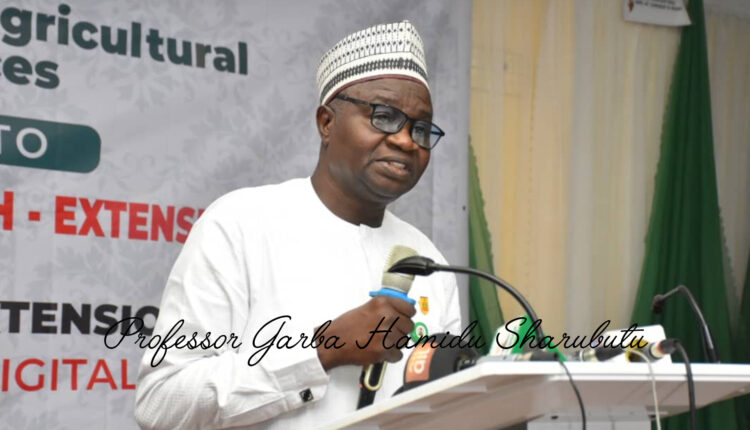Beyond Awareness, why Media, CSOs, NGOs are Catalysts for Agricultural Transformation, by Sharubutu
The Executive Secretary of the Agricultural Research Council of Nigeria (ARCN), Professor Garba Hamidu Sharubutu, has indicated that the call for media, CSOs and NGOs to champion agricultural reforms is not just about spreading awareness, but about driving real, grassroots change.
At a media engagement in Abuja on Thursday, he emphasized that modernizing agriculture requires more than government policies; it demands active participation from key influencers who can bridge the gap between innovation and real-world adoption.
Explaining further, he said a critical component of the transformation is the National Electronic Extension Platform (NEEP)—a groundbreaking initiative that eliminates geographical barriers by providing farmers with real-time advisory services, research-backed decision-making tools, and seamless knowledge transfer.
However, he said that for NEEP to fulfil its potential, it needs widespread adoption, and that’s where media and advocacy groups come in.
Similarly, he indicated that the Electronic Technology Transfer (ETT) platform which connects farmers with research experts, extension officers, and stakeholders across various commodity value chains also require media advocacy.
According to him, digital solutions are only as effective as their accessibility and user engagement.
Hence, he reiterated the need for the Media, CSOs, and NGOs to step in to ensure these tools do not become another set of underutilized government initiatives.
“Beyond digital platforms, the government is taking a community-driven approach by establishing Adopted Villages & Agricultural Research Outreach Centres, which serve as knowledge hubs for training and advisory services.
“The challenge now is to ensure these initiatives translate into tangible benefits for farmers, especially smallholders who make up the bulk of Nigeria’s agricultural workforce.
“One of the most overlooked but vital developments is the creation of Nigeria’s first Agricultural Research Museum, consolidating decades of research into a single hub for commercializing viable agricultural innovations.
“Yet, without strategic communication and grassroots advocacy, many of these breakthroughs may never reach the farmers who need them most.”
Professor Sharubutu’s call to action is clear: Agriculture is the backbone of Nigeria, but without effective collaboration between government, the media, and civil society, these reforms will not achieve their full impact.
He said beyond reporting government initiatives, the media should hold stakeholders accountable, tracking the real-world impact of these innovations.
According to him, Civil society organizations are expected to engage rural farmers directly, to ensure technology and research solutions are adapted to local realities.
“The NGOs should drive pilot programs, measuring success and refining strategies to make government interventions more effective.”
In conclusion, he said food security is not just a government concern but a national priority that requires a multi-stakeholder approach.
“By moving beyond traditional advocacy and actively integrating these innovations into farming communities, media, CSOs, and NGOs can be the driving force behind a true agricultural revolution in Nigeria.”

